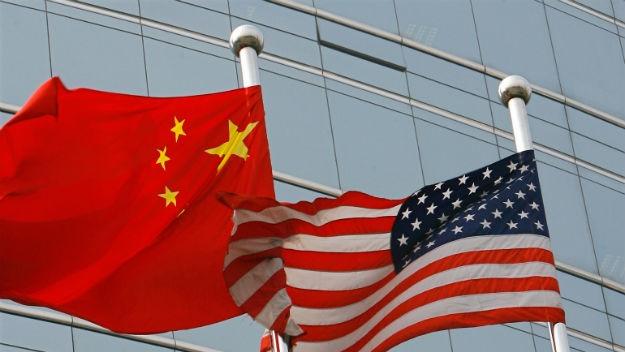 This undated file photo shows the Chinese National Flag and the US National Flag. (PHOTO /XINHUA)
This undated file photo shows the Chinese National Flag and the US National Flag. (PHOTO /XINHUA)
The United States government's move to add 33 Chinese entities to its so-called Unverified List disregards multilateralism and international commerce rules, and the tighter export controls will further stress the already fragile global industrial and supply chains, experts said on Tuesday.
They also said the increased restrictions on overseas shipments by US exporters will not only hurt the legitimate rights of foreign organizations, but will eventually harm US enterprises while impeding international cooperation in technology and trade.
Their comments came after the US Commerce Department said on Monday that it had added the 33 Chinese entities to the list, which requires extra procedures from US exporters who want to do business with them. The new entries are primarily high-tech enterprises, such as two subsidiaries of biotech WuXi Biologics and some electronics companies.
If more work is needed to verify the legitimacy and reliability of those entities in relation to their use of US exports, a better way is to solve the problem through cooperation rather than such a deed that damages the normal operations of enterprises, hurts trust and distorts trade.
Zhou Mi, senior researcher at the Chinese Academy of International Trade and Economic Cooperation
In an online statement on Tuesday, a spokesperson for China's Ministry of Commerce said that the country strongly opposes the US move, and that the US must correct the wrongdoing immediately.
"The US side has been employing export controls as a tool of political suppression and economic bullying in recent years and continues to take unilateral measures to suppress and contain enterprises, institutions and individuals of other countries, creating obstacles to normal economic and trade cooperation between Chinese and US enterprises," the statement said.
ALSO READ: Beijing slams adding 33 Chinese firms to US 'unverified list'
Zhou Mi, a senior researcher at the Chinese Academy of International Trade and Economic Cooperation, said, "Once again, the US put its own interests above the commercial interests of domestic and foreign enterprises."
"If more work is needed to verify the legitimacy and reliability of those entities in relation to their use of US exports, a better way is to solve the problem through cooperation rather than such a deed that damages the normal operations of enterprises, hurts trust and distorts trade," Zhou said.
Such moves are very dangerous to global industrial and supply chains, which are already under significant pressure from the COVID-19 pandemic, Zhou added.
Following the US announcement, WuXi Biologics saw remarkable stock plummet on Tuesday. However, the company said in an online statement that the addition of two of its subsidiaries to the list had no impact on its business or ongoing service to partners, and very minimal impact on its imports, as no equipment such as that listed is needed now after construction of facilities in Shanghai and Wuxi, Jiangsu province, was completed.
Cui Fan, a professor of international trade at the University of International Business and Economics, said the US government has been generalizing the concept of national security to increase trade restrictions in recent years. That also harms the interests of US enterprises and impedes trade development due to rising uncertainties and the cost of transactions, he said.
READ MORE: Official: US trade deal sees growth in farm produce exports
According to Zheng Lei, chief economist at Glory Sun Financial Group, the increased restrictions by the US government on commerce activity highlights the US' tendency to disturb trade as well as science and technology research activities amid geopolitical disputes with other countries. However, he added that will have very limited impact on the Chinese economy.


